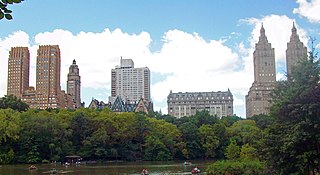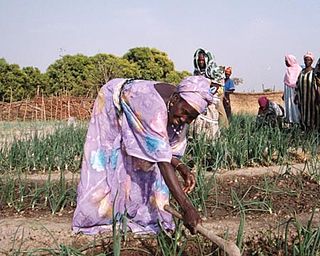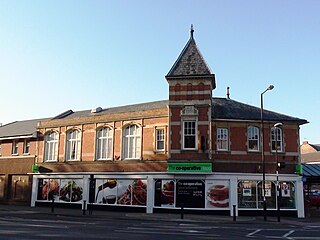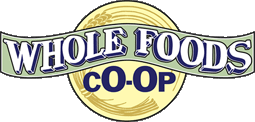
A cooperative is "an autonomous association of persons united voluntarily to meet their common economic, social and cultural needs and aspirations through a jointly owned and democratically-controlled enterprise". Cooperatives are democratically controlled by their members, with each member having one vote in electing the board of directors. They differ from collectives in that they are generally built from the bottom-up, rather than the top-down. Cooperatives may include:

A housing cooperative, or housing co-op, is a legal entity which owns real estate consisting of one or more residential buildings. The entity is usually a cooperative or a corporation and constitutes a form of housing tenure. Typically housing cooperatives are owned by shareholders but in some cases they can be owned by a non-profit organization. They are a distinctive form of home ownership that have many characteristics that differ from other residential arrangements such as single family home ownership, condominiums and renting.
A worker cooperative is a cooperative owned and self-managed by its workers. This control may mean a firm where every worker-owner participates in decision-making in a democratic fashion, or it may refer to one in which management is elected by every worker-owner who each have one vote. Worker cooperatives may also be referred to as labor-managed firms.

An agricultural cooperative, also known as a farmers' co-op, is a producer cooperative in which farmers pool their resources in certain areas of activities.
The United Kingdom is home to a widespread and diverse co-operative movement, with over 7,000 registered co-operatives owned by 17 million individual members and which contribute £34bn a year to the British economy. Modern co-operation started with the Rochdale Pioneers' shop in the northern English town of Rochdale in 1844, though the history of co-operation in Britain can be traced back to before 1800. The British co-operative movement is most commonly associated with The Co-operative brand which has been adopted by several large consumers' co-operative societies; however, there are many thousands of registered co-operative businesses operating in the UK. Alongside these consumers' co-operatives, there exist many prominent agricultural co-operatives (621), co-operative housing providers (619), health and social care cooperatives (111), cooperative schools (834), retail co-operatives, co-operatively run community energy projects, football supporters' trusts, credit unions, and worker-owned businesses.

A consumers' co-operative is an enterprise owned by consumers and managed democratically and that aims at fulfilling the needs and aspirations of its members. Such co-operatives operate within the market system, independently of the state, as a form of mutual aid, oriented toward service rather than pecuniary profit. Many cooperatives, however, do have a degree of profit orientation. Just like other corporations, some cooperatives issue dividends to owners based on a share of total net profit or earnings ; or based on a percentage of the total amount of purchases made by the owner. Regardless of whether they issue a dividend or not, most consumers’ cooperatives will offer owners discounts and preferential access to goods and services.
Food Conspiracy is a term applied to a movement begun in the San Francisco Bay Area in 1968 in which households pooled their resources to buy food in bulk from farmers and small wholesalers and distribute it cheaply. The name came to describe a loose network of autonomous collectives which shared common values and, in many cases, suppliers. Many participants were seeking an alternative to supermarkets and became involved to obtain direct control of the quality and type of food they were sourcing, with a strong focus on wholefoods and organic produce.
A food cooperative or food co-op is a food distribution outlet organized as a cooperative, rather than a private or public company. Food cooperatives are usually consumer cooperatives, where the decisions regarding the production and distribution of its food are chosen by its members. Like all cooperatives, food cooperatives are often based on the 7 Rochdale Principles, and they typically offer natural foods. Decisions about how to run a cooperative are not made by outside shareholders, therefore cooperatives often exhibit a higher degree of social responsibility than their corporate analogues.

Puget Consumers Co-op, doing business as PCC Community Markets, is a food cooperative based in Seattle, Washington. With over 114,000 members, it is the largest consumer-owned food cooperative in the United States. Both members and non-members may shop at the retail locations, but members receive certain discounts. The organization currently operates fifteen retail locations. Eight of the fifteen stores are located in Seattle. The West Seattle location reopened on October 2, 2019. The other seven are located in Issaquah, Kirkland, Burien, Bothell, Redmond, Edmonds and Bellevue.

Dublin Food Co-operative Society Limited is a consumer co-operative founded in 1983 and based in Kilmainham, Dublin, with a focus on organic and wholefood products. The Dublin Food Co-op is part of the worldwide co-operative movement.
The Wedge Community Co-op or The Wedge is a food cooperative located in Minneapolis, Minnesota. Located at 2105 Lyndale Avenue South, the Wedge derives its name from the popular nickname for the Lowry Hill East neighborhood, called "The Wedge" due to its shape. The Wedge is a member of the NCG.

The 4th Street Food Co-op is a food cooperative located in New York City. The 4th Street Food Co-op runs a retail store at 58 East 4th Street, selling natural foods and household products. The co-op is member-owned and -operated, but open to the public, and focuses on offering locally grown organic, and ethically produced products.

Unicorn Grocery is a co-operative grocery store located in Chorlton-cum-Hardy, Manchester, England. As a workers co-op, it is controlled democratically by its members/owners, who run the business with a flat management structure and with an equal rate of pay. Ethics form the foundations of the business, and Unicorn's Principles of Purpose are the framework within which the business operates.

Whole Foods Co-op is a food cooperative located in Duluth, Minnesota. Founded in 1970 by the members of a food buying club, the grocery is owned by over 10,000 active owners and is a member of the National Cooperative Grocers Association.

New Pioneer Food Co-op, commonly shortened to New Pi, is a locally owned food cooperative based in Iowa City, Iowa. This city also serves as the headquarters of the National Cooperative Grocers Association. New Pioneer has stores in Iowa City, Coralville, and Cedar Rapids as well as a production hub in North Liberty, Iowa.

Citizens Co-op was a food cooperative, or a community owned market located in Gainesville, Florida. It closed in 2016 due to financial issues.

Mandela Partners, formerly Mandela MarketPlace, is a non-profit organization in Oakland, California, that works to aid low-income communities in improving access to food and healthcare resources.
Quay Co-operative (Cork) Limited, trading as Quay Co-op, is a worker cooperative operating a number of organic, vegetarian wholefoods shops, coffee docks and a restaurant in Cork City and County Cork.












